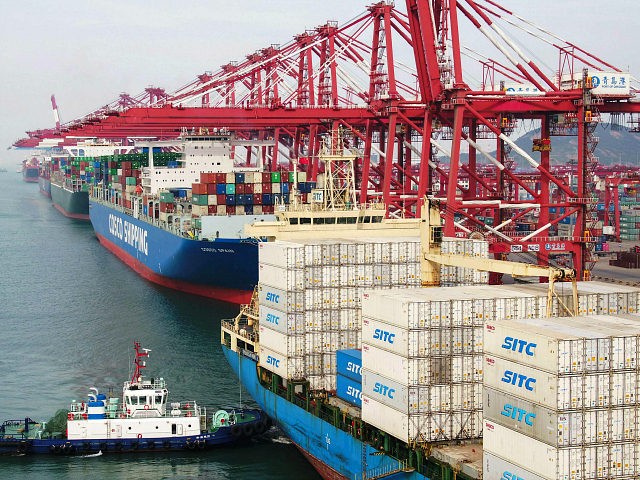The South China Morning Post (SCMP) on Wednesday reviewed Chinese customs data and found several major blockages of Australian imports over the past month, including 9,000 liters of Australian craft beer turned away at the port city of Xiamen and 8,000 kilograms of frozen beef denied entry to Shanghai.
China and Australia are embroiled in a long-running trade and diplomatic feud.
According to the documents reviewed by the SCMP, the craft beer from Sydney Beer Co. was blocked for “incorrect labeling” of its products, while the frozen beef from Meramist was held for “mismatched certifications.” Neither of these vague justifications was presented to the Australian companies at the time their products were rejected.
The SCMP said there was no indication that either Sydney Beer or Meramist have been completely banned by the Chinese government, only problems with those individual shipments. Several other Australian meat processors have been blacklisted by the Chinese, generally over repeated allegations of “mislabeling” and “mismatched certifications,” although one company was also cited for coronavirus infections at its plant. Other Australian companies have been cited for minor infractions without their shipments being completely rejected at Chinese ports.
The rejections are evidently a consequence of China tightening up its rules, and cutting Australian exporters less slack, as relations between the two countries deteriorated:
Simon Quilty, Australian agricultural expert and managing director of MLX, a company which specializes in risk management and brokering beef swaps, said political tensions have made exporters more vulnerable especially with China moving faster to penalize mistakes.
Once upon a time, China was willing to show more tolerance and help resolve these issues together. Today, there is little left in China’s ‘goodwill bank’ towards Australia.
“China’s tolerance today, compared to two years ago for Australia, is low for any irregularities in export compliance, whether it is labelling or any other specification issue,” said Quilty. “Once upon a time, China was willing to show more tolerance and help resolve these issues together. Today, there is little left in China’s ‘goodwill bank’ towards Australia.”
There are apparently few illusions that Australia’s shipping problems with China are anything but political in nature. Quilty hoped Australia’s new trade minister, Dan Tehan, might be able to “rebuild credibility” between the two countries, perhaps with some urging from Australian companies nervous about the constant metaphorical warning shots fired at them by Chinese customs inspectors over the past year.
By subscribing, you agree to our terms of use & privacy policy. You will receive email marketing messages from Breitbart News Network to the email you provide. You may unsubscribe at any time.
On the other hand, the UK Daily Mail on Tuesday judged that China is losing its trade with Australia, as the Aussie economy remains much stronger than Chinese strategists anticipated, while China’s “insatiable demand” for Australian exports of iron ore remain high.
The Daily Mail noted that the value of iron has steadily increased from $80 per metric ton in May and is expected to remain as high as $100 per ton through 2022. China’s hunger for the ore is sky high, it currently gets about 60 percent of its supply from Australia, and its other major supplier Brazil is struggling to meet demand.
Australia’s other exports to China are only down 0.4 percent as a consequence of the trade war, although its trade surplus with China hit a 16-month low of $62.9 billion in November.
The Australian industry hit hardest by Chinese bans might be timber, a trade that has been almost completely cut off as China banned imports from Australia’s six biggest logging states. Chinese regulators say the timber imports were banned because harmful bark beetles were found in the wood.
The Australian Forest Products Association (AFPA) said on Thursday it is working on a “comprehensive package of reforms” that will address China’s concerns, although it also implied those concerns might be somewhat questionable by referring to the bark beetle sightings as “alleged” and suggesting markets other than China could be sought for Australian timber.

COMMENTS
Please let us know if you're having issues with commenting.